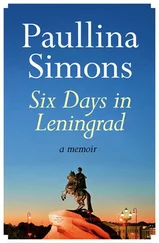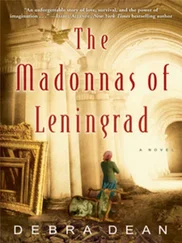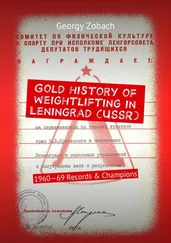The volunteerism of the first few days of the war swiftly became mandatory. On Friday 27 June—before the rest of the Soviet Union {17} 17 The Council of People’s Commissars only ordered mass mobilisation on 2 July (Gouré, The Siege of Leningrad , p. 38).
—the Leningrad city soviet issued an order mobilising all able-bodied men between the ages of sixteen and fifty, and all women, except for those caring for young children, aged between sixteen and forty-five, for civil defence work. Most were sent to the countryside to dig anti-tank ditches; the rest were put to work in the city digging air-raid shelters, camouflaging public buildings (the entire Smolniy was draped in netting, and amateur mountain climbers painted the Admiralty’s gilded spire grey), and manning new fire-fighting, bomb-disposal and first-aid teams, as well as replacing factory workers drafted into the army. Much of the responsibility for making all this happen fell on the ubiquitous, disliked upravdomy , or apartment block managers, who were given the power to assign civil defence duties as well as to check residence permits and report on draft dodgers. {18} 18 Gouré, The Siege of Leningrad , p. 22; Salisbury, The 900 Days , p. 168.
For children, all this novel activity was rather fun. Yuri Ryabinkin helped build bomb shelters near the Kazan cathedral—‘now I have blisters and splinters on both hands’, he wrote proudly—loaded sand—‘the boys modelled Hitler’s ugly mug out of sand and started whacking it with spades’—played pool and more chess at the Pioneer Palace and read David Copperfield . {19} 19 Adamovich and Granin, A Book of the Blockade , pp. 237–8.
Little Igor Kruglyakov, finding himself left to his own devices, went out exploring—to the Tavrichesky Gardens, where silver barrage balloons swum like great whales above the gravel paths, and to the Suvorov Museum, whose janitor let him on to the roof to look at his racing pigeons. Blackouts—not very effective in the short, light summer nights—were introduced on 27 June, and phosphorescent badges, shaped like fireflies and roses, issued to children so as to prevent accidents. Attics were filled with sand and painted with flame-retardant limewash, and window glass pasted over with strips of paper or gauze, so as to reduce splintering. Applying the strips, wrote Lidiya Ginzburg, ‘had a soothing effect, distracting people from the emptiness of merely waiting. But there was something poignant and strange about them too, reminiscent of a sparkling surgical ward, where there were as yet no wounded, but soon would be.’ To others the strips looked light and decorative, like garden trellising or the carved window frames of prosperous peasant cabins. Some designs were imaginative—the inhabitants of a building on the Fontanka did theirs in the shape of palm trees, with monkeys sitting underneath—but the commonest pattern was two simple diagonals, and the resulting white St Andrew’s Cross became a visual leitmotif of the siege.
Dmitri Likhachev, exempted from call-up for medical reasons, did military training alongside his colleagues from Pushkin House.
We ‘white-ticketers’ were enlisted into the Institute self-defence detachments, issued with double-barrelled shotguns and drilled in front of the History Faculty building. I remember B. P. Gorodetsky and V. V. Gippius among the marchers. The latter walked in comical fashion on his toes, leaning his whole body forward. Our instructor laughed silently along with everyone else…
Far-sightedly, Likhachev also stocked up on food, insisting that his family claim their whole, initially generous, bread ration, and dry slices on a sunny windowsill until they had enough to fill a pillowcase, which they hung on a wall out of reach of mice. He also insisted that they buy everything they could from the rapidly emptying shops, whose windows were now blocked with double screens of earth-filled planking. Later, he was to wish that they had bought more.
In winter, lying in bed, I thought of one thing until my head hurt: there, on the shelves in the shops, there had been canned fish. Why hadn’t I bought it? Why had I bought only eleven jars of cod-liver oil, and not gone to the chemist’s a fifth time to get another three? Why hadn’t I bought a few vitamin C and glucose tablets? These ‘whys’ were terribly tormenting. I thought of every uneaten bowl of soup, every crust of bread thrown away, every potato peeling, with as much remorse and despair as if I’d been the murderer of my own children. But all the same, we did as much as we could, and believed none of the reassuring announcements on the radio. {20} 20 Dmitri Likhachev, Reflections on the Russian Soul: A Memoir , p. 220.
Georgi Knyazev, director of the Academy of Sciences archive, was confined to a wheelchair by paralysis of the legs. Each day he pushed himself along the same 800-metre stretch of the Vasilyevsky Island embankment, from the bronze-plaqued ‘Academicians’ Building’ where he lived, past a pair of sphinxes imported from Luxor by Nicholas I, the gabled Menshikov Palace and lime tree-filled Rumyantsev Square to the portico of the Academy. On the opposite bank spread the classic Petersburg panorama: to the left, beyond Palace Bridge, the rococo hulks of the Hermitage and Winter Palace; just visible behind them, the Palace Square angel and topmost candy-swirl of the Cathedral of Our Saviour of the Spilled Blood; ahead, the Admiralty building with its needle spire; to the right, the egg-shaped dome of St Isaac’s and Falconet’s famous equestrian statue of Peter the Great—the ‘Bronze Horseman’—rearing from its granite boulder. This stretch of pavement, this view, was what Knyazev called his ‘small radius’, the narrow aperture through which he was to observe the whole of the siege. Prosy and conventional (his diary is addressed, with unintentional irony, to ‘you, my distant friend, member of the future Communist society, to whom all war will be as inherently loathsome as cannibalism is to us’ {21} 21 Adamovich and Granin, A Book of the Blockade , p. 229.
),he spent the first days of the war listening to the radio (‘The peoples of Europe must surely rise in rebellion!’) sorting out a first-aid kit (‘for use in the event of burns or wounds’), and attempting to energise his staff, who showed a tendency to ‘guard the sofa in the President’s office’ instead of the archive’s depository. On 2 July he visited the archive administration headquarters, in the old Senate Building:
On the staircase which once heard the rap of Guards Officer Lermontov’s sabre… there now hangs a length of rail on a thick cord, and next to it a metal rod—a beater. This is for use in the event of a gas alarm. On the upper landing it was dark, although blue lamps were burning. Walking along the corridor, which was in almost total darkness, I felt as though I were in a Meyerhold production.
The IRLI [Institute of Russian Literature] repository was a dreadful sight. I hardly recognised the workrooms. Everything was in chaos… Behind a statue of Aleksandr Vsevolovsky stood two large barrels of water, one of which was already leaking. There were boxes of sand and spades all over the place, and a fire hose stretched along the corridor. Outside the Pushkin room stood storage boxes, some empty, some full. I had to do them justice—Pushkin’s manuscripts were packed perfectly… But there was a lot of fuss and agitation. Right next to the boxes, a staff member was dictating an article on fascism to a typist. Someone else was writing out a list of what had to be packed… Everywhere, there were crowds of people carrying sandbags.
Yelena Skryabina decided to escape the war—and reduce her chances of arrest—by renting a dacha (their price had plummeted) near Pushkin, the town, formerly Tsarskoye Selo or ‘Royal Village’, that had grown up around the tsars’ summer palaces. There she and her children spent their time wandering in the sunshine round the folly-dotted Catherine Palace park. ‘Blue sky, blue lake, and the green frame of the shore. Peaceful. No voices audible. No one strolling the paths. Only somewhere, far away, the silvery walls of the palaces sparkling through the greenery.’ {22} 22 Throughout the Stalin period, temporarily moving elsewhere was a surprisingly effective way of avoiding the local security services, who were often more concerned with filling their quotas than with exactly who they put behind bars. Lidiya Chukovskaya, friend and amanuensis of Anna Akhmatova, escaped the purges of 1937 simply by moving to Kiev to live with her parents-in-law. ‘You are like a glass which has rolled under a bench during an explosion in a china shop,’ said Akhmatova.
On weekly visits back to the city, though, it was impossible to shut out reality. She worried about gas attacks (unnecessarily as it turned out; gas masks were issued but never had to be used), and about famine, ‘because all those newspaper reassurances about our massive food supplies are barefaced lies’. Her neighbour Kurakina whispered of the beatings her newly returned but now half-deaf and fearful husband had endured in camp; up in the cloudless sky high-flying planes left vapour trails, a sinister novelty to Leningraders, who thought them some sort of targeting device.
Читать дальше











